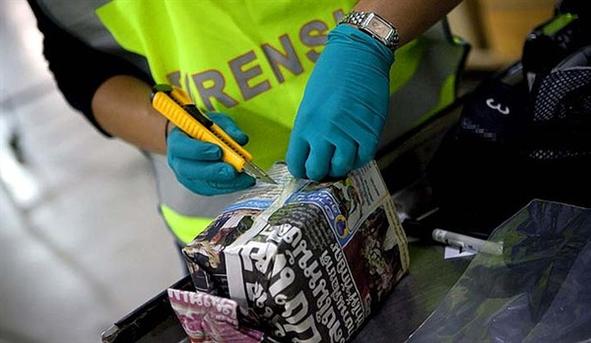The Vine story: ‘What Was Silk Road? A eulogy for an online drug revolution’, October 2013
A story for TheVine.com.au. The full story appears below.
What Was Silk Road? A eulogy for an online drug revolution
Prior to its seizure by the Federal Bureau of Investigation in the early hours of Wednesday, October 3, Australian time, a website named Silk Road was the holy grail for illicit drug users of all stripes. Since mid-2011, dealers and consumers had been drawn to the site like iron filings to a magnet. Their reasons for downloading a Tor browser and copy-pasting the complex URL that housed Silk Road (SR) can be reduced to two key motivating factors: cash and product.
For drug dealers – or, in SR-preferred parlance, ‘vendors’ – the lure of a steady supply of international buyers was enough to motivate the investigation of innovative, stealthy shipping techniques that would see their packages of powders, crystals and pills delivered to intended addresses without raising the alarms of border security. This quickly became a point of pride among the most dedicated vendors, some of whom marketed their packaging options as ‘undetectable’ and cherished buyer feedback that praised innocuous, ingenious delivery methods. Subterfuge was the name of the game.
It helped, too, that SR offered vendors the opportunity to turn the risky, dangerous job of face-to-face dealing into the ultimate work-from-home gig. When I began poking around the site in late 2011, while researching a feature story for Australian Penthouse, I interviewed several vendors via SR’s plain-text messaging system. One told me that SR was “better and cleaner” than dealing drugs offline. “Customers are more educated and nice, and it leaves you more spare time to study, play with the kids, and clean the house,” I was told. “It’s telecommuting at its finest.”
This was the defining image of Silk Road: a mild-mannered, sober, white collar professional who casually fielded an order for a gram or two of cocaine, printed the buyer’s address and applied it onto an anonymous envelope, vacuum sealed the illicit product inside and dropped the package into a random mailbox – with the correct amount of postage stamps attached, naturally.
That image clashed violently with that of the stereotypical drug dealer, who stands on a street corner and controls his territory and product distribution through coercion, extortion and violence. Both operate outside of the law through necessity, since the supply, traffic and use of many drugs remains illegal in all but a handful of countries, most notably Portugal.
Where once small-time dealers were confined to a few inner-city blocks, or their regular clients within nightclubs on Saturday nights, enterprising Silk Road vendors were limited only by their own ingenuity and imagination. Both online and off, intelligence is what set apart savvy dealers from those behind bars. In February, a 32 year-old Victorian – SR username ‘shadh1’ – was sentenced to three and a half years in jail for importing and reselling drugs purchased on the site, with reckless disregard for anything resembling security, self-preservation or stealth, three of the essential values on which SR was founded.
It is telling and troubling for long-time SR users, too, that even the man alleged to have established the site was not above careless security slip-ups; he advertised his personal Gmail address on public forums requesting an “IT pro in the Bitcoin community” to assist with the site’s early growth, according to an FBI affidavit.
Cash aside, the motivating factor for users was always the product. Cocaine, heroin, LSD, MDMA, cannabis, methamphetamine, psilocybin; Silk Road did not synthesise any of these compounds, nor discover the natural substances. It simply revolutionalised their distribution. My interview with a newbie SR buyer for Australian Penthouse was emblematic of what the site offered buyers.
“I’m interested in taking drugs casually, but I hate the process,” the 24 year-old Brisbane resident told me. “I don’t know any dealers. Even if I want to get weed, I don’t know anyone, so it always becomes this drawn out process of finding someone who knows someone who knows someone. It’s a real pain in the arse. Whereas this way, it’s so direct and private. I didn’t leave my room, and then nine days later there was something in the mailbox that was for me. It’s discreet and exciting. Imagine the fun of shopping on eBay, but then you can also get high.”
While Silk Road’s days are numbered, and its founder seems set for a long prison sentence, the cat is certainly out of the bag. The site was a brilliant intermediary between drug dealers and users right up until it wasn’t. But to imagine that humans will suddenly cease synthesising, cultivating, pursuing, distributing and ingesting substances that alter mind and mood is at least wishful thinking; at worst, high folly.
The Federal Bureau of Investigation, Drug Enforcement Administration, Department of Homeland Security and associated organisations can today congratulate themselves for a job well done in seizing Silk Road and its significant stockpile of assets and intelligence. It is their job to catch criminals. Although the plug has been pulled on the most open illicit drug marketplace that the world has ever seen, tomorrow is a new day.
The seemingly infallible Silk Road has been beheaded, but two heads will appear in its place, hydra-like. Right now, its competitors will be quadruple-checking their security practices and managing server loads, while new registrations and orders pour in. The mail won’t stop. At the heart of this conversation is the fact that humans like to get high, and they’re willing to pay for that privilege. This is but a stumble on a very long walk. Absolutely nothing has changed.
Further reading: Australian Penthouse story: ‘The High Road: Silk Road, an online marketplace like no other’, February 2012
